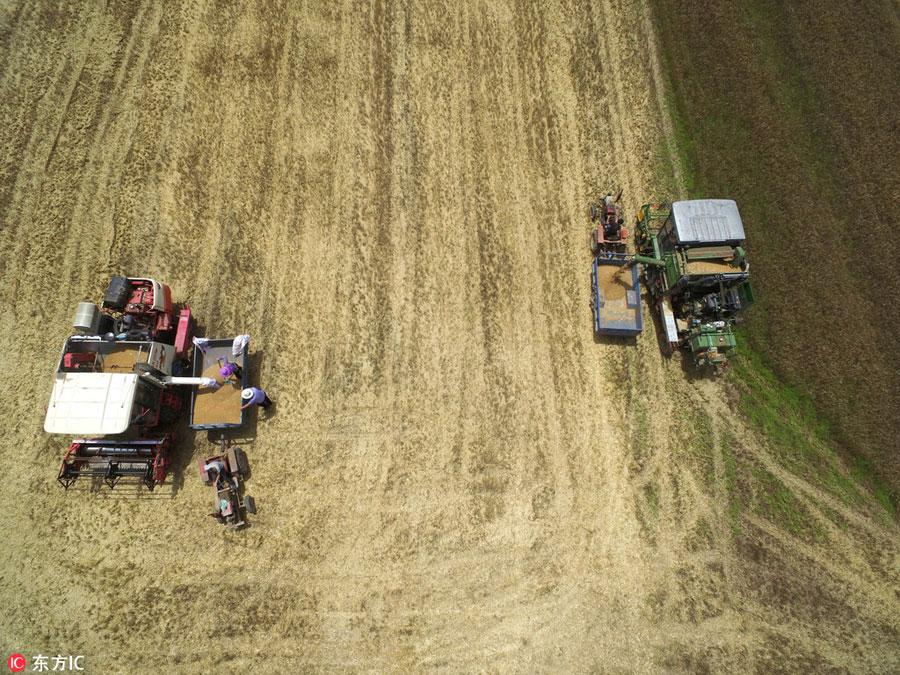Consolidation promotes development of farming sector


Between 1949, when the People's Republic of China was founded, and 1952, the landlord system was abolished and farmers were given full ownership of their land: they could buy, sell, operate it freely or lease it to other people.
However, in 1953, China started its socialist transformation, which promoted collective land ownership by rural cooperatives and related groups. Farmers worked together in units and did not have the right to lease land to others or transfer ownership.
In 1978, farmers were allowed to sign contracts with villagers' committees for use of an agreed area of land operated by local cooperatives.
In the years that followed, more efficient production methods resulted in higher yields and led to the founding and promotion of family-based individual farms on contracted land nationwide.
That transformation prompted the nation's farmers to raise their work rates, which resulted in better yields and ensured food shortages and hunger quickly became history.
However, although farmers had the right to work the land they contracted they were not allowed to transfer or lease it, so it was generally not in circulation - that is, leased out - in rural areas.
To provide a greater sense of security among farmers, in 1997 and 2017, the central government pledged that land contracts would automatically be extended for 30 years when they expired.
- Mainland scholar discloses fallacies in Lai's separatist narrative on 'unity'
- University's expulsion of female student ignites online debate
- 4,000 hiking enthusiasts hit rugged trails in Chongqing
- Creative fireworks show held in China's 'fireworks capital'
- Chinese scientists achieve net-negative greenhouse gas emissions via electrified catalysis
- At the gateway to China's resistance, memories of war echo 88 years on





































